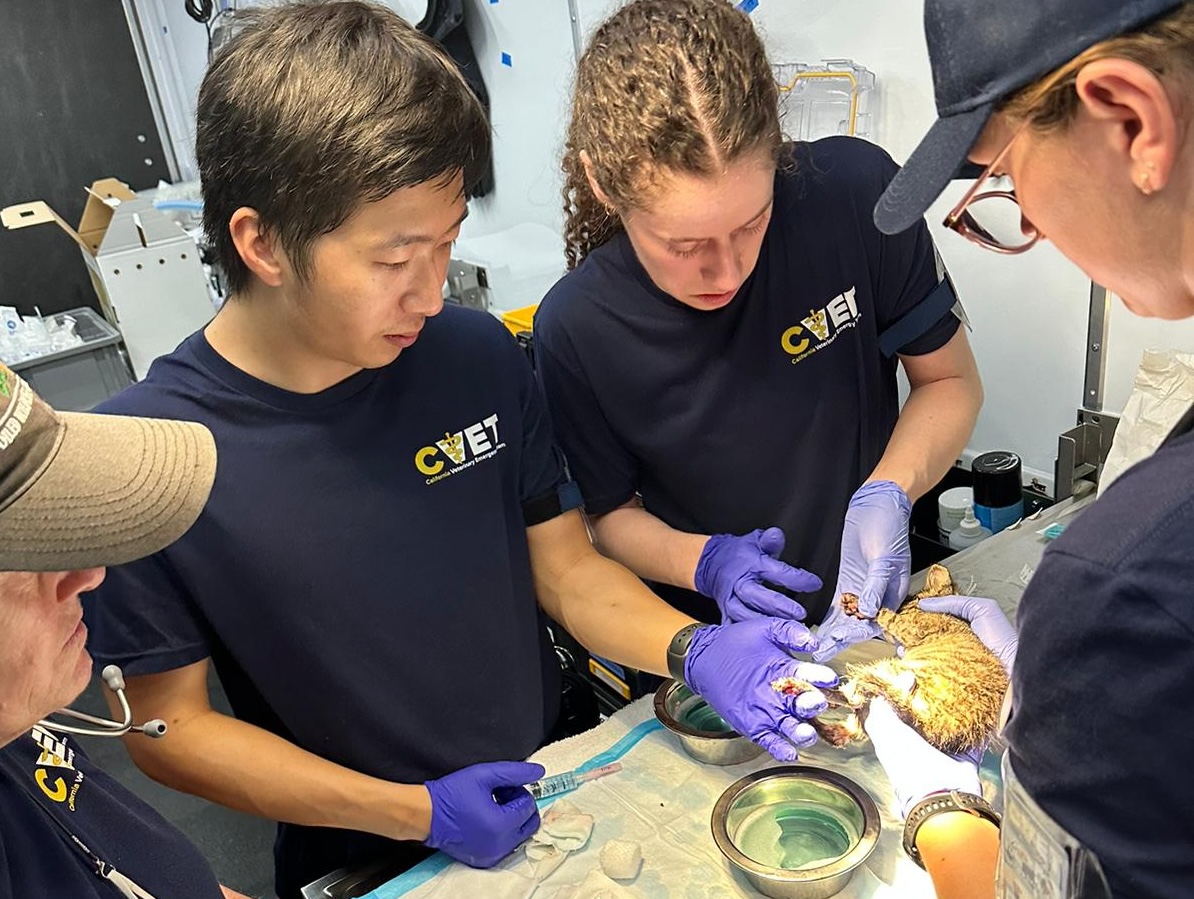
Aggies in One Health: Q&A with Brian Wang
Brian is completing his final year as a veterinary student at UC Davis School of Veterinary Medicine.
What first sparked your love of animals?
Growing up, there was pretty much always at least one dog in our household. They were some of my closest friends who would always be there whenever I needed them. They taught me how to care for animals and gave me some sense of responsibility in their training and care.
What was it about your interest in animals that led you to veterinary medicine (as opposed to a different type of career involving animals)?
I’ve always enjoyed problem solving and puzzles so I knew I wanted to pursue a career that challenged my critical thinking. I also knew I wanted to incorporate animals into my life and be able to help them in some capacity. The two combined perfectly into pursuing a career in veterinary medicine! It was also important to me to be able to help give a voice to patients who could not openly communicate their needs.

What is one of your craziest animal stories from early in your career?
I remember there was one patient that had a mass removal performed on the front leg and had been in hospital recovering. The mass was fairly large so there was not a lot of extra skin left to close over the cut. Another assistant brought the dog out later to check the dog before he went home and a stream of blood started spraying out from the leg and flew a few feet. The other assistant was understandably shocked so I just started applying pressure to the leg while calling out for the doctor. We put the dog back under anesthesia and took it into the OR to close the blood vessel and stop the bleeding. Everything turned out fine for the dog in the end but was definitely an unexpected complication to our calm afternoon!
Was your participation in the Park Fire response your first experience providing veterinary care during a disaster? If yes, how was it? If no, what other prior experience did you have?
The Park Fire was my first experience with disaster relief! It was a great opportunity to see firsthand the organization and structure in place after learning about them through student Veterinary Emergency Response Team (sVERT) which was then incorporated into California Veterinary Emergency Team (CVET). We were able to help animals both large and small. It was actually my first time treating relatively fresh burn injuries so I got some very helpful experience on bandaging and wound management. We were able to talk about disaster triage and see the intake of patients. I really appreciated the collaboration between all the members and organizations with constant efforts made to improve intra-agency communication and share ideas.

Could you give a quick summary of your education, career, and service?
I completed my undergraduate studies in Biochemistry and Cell biology at UCSD and then moved on to veterinary school at UC Davis where I am currently completing my final year. During my time as a pre-veterinary student, I worked in a small animal general practice clinic and spent some time doing wildlife rehabilitation. As a vet student, I have volunteered and helped run Mercer Clinic during my second year. There, we provided free veterinary care to pets of individuals experiencing homelessness. I’ve also volunteered at the Trap Neuter Release program with the Sacramento SPCA and attended clinics at Covelo to provide care to the community which normally has no nearby veterinary clinics. I had been training to deploy to any natural disasters with California Veterinary Emergency Team (CVET) until I deployed to the Park Fire.
Is there one piece of advice you'd give aspiring veterinarians looking to work in One Health?
I’m still very much just beginning my journey into veterinary medicine but one thing I’ve learned is that there are many ways to get involved in One Health! Just learning about topics such as how zoonotic diseases can spread and in turn educating clients or the general public can make a big difference. Anyone can be an advocate and becoming involved does not have to be an unachievable goal!
